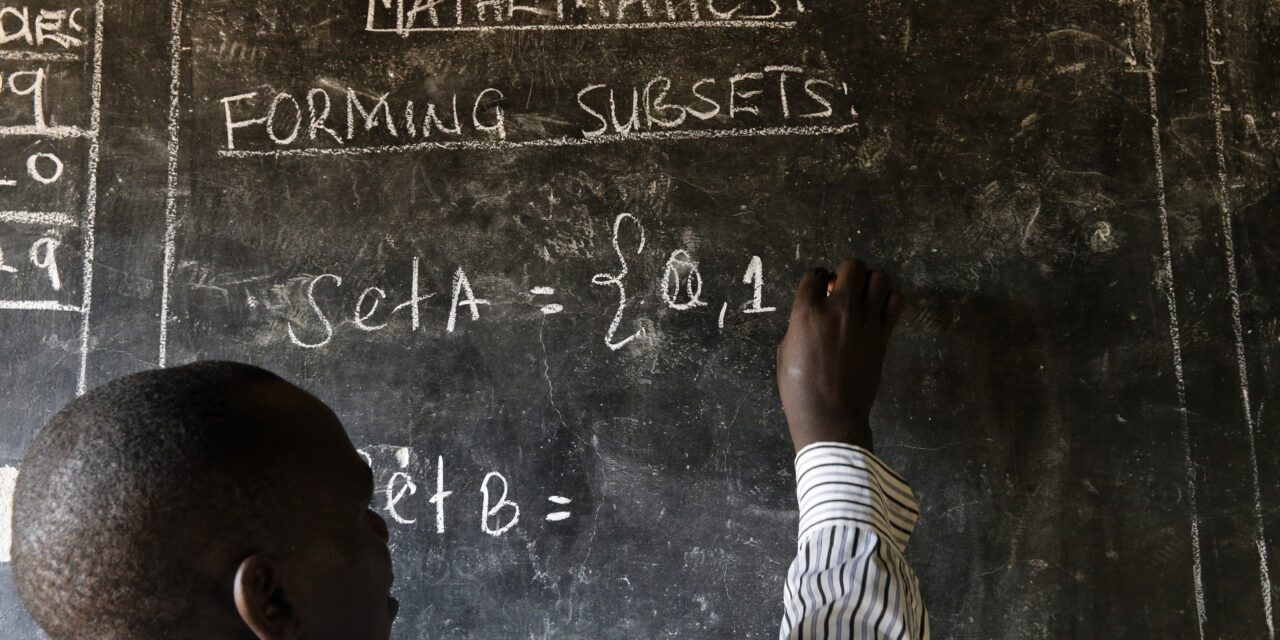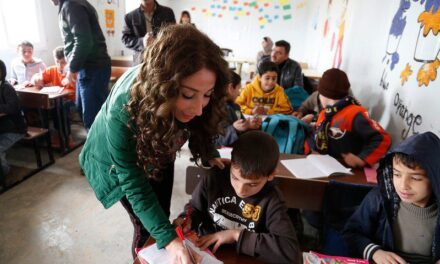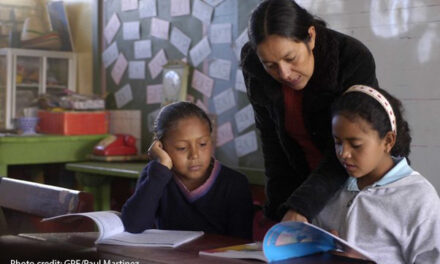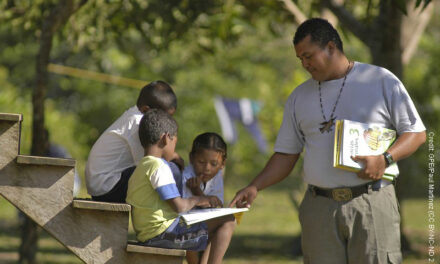This blog was written by Elizabeth Tofaris, University of Cambridge, on behalf of the the Impact Initiative for international development research. The Impact Initiative seeks to connect policymakers and practitioners with the world-class social science research supported by the ESRC-DFID Strategic Partnership, maximising the uptake and impact of research from: (i) the Joint Fund for Poverty Alleviation Research, and (ii) the Raising Learning Outcomes in Education Systems Programme.
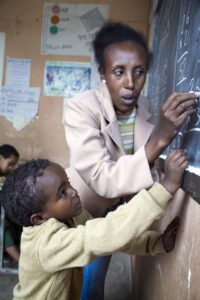
A teacher shows one her pupils how to do a maths sum on a blackboard. Photo Credit_Petterik-Wiggers_Panos-Pictures.
Teachers are crucial to achieving the ambitions articulated in Sustainable Development Goal 4, which aims to ensure that no one should be left behind in education. Their motivation, skills and knowledge will play a crucial role in whether hundreds of millions of children are able to see a path out of the global learning crisis. Yet, in low-income countries, disadvantaged learners often face poor quality teaching: many teachers are recruited without having a basic subject knowledge themselves, receive inadequate training with limited attention to strategies to support children from diverse backgrounds, and weak incentives and poor teacher governance can lead to low motivation and high levels of teacher absenteeism.
A new collection of ESRC-DFID-funded research explores the process of teaching, and the factors that make good quality teaching. ‘Research for Policy and Practice: Quality Teaching’ highlights key messages from research funded by the ESRC-DFID Joint Fund for Poverty Alleviation and the Raising Learning Outcomes in Education Systems Research Programme. Produced by the Impact Initiative for International Development Research, which seeks to connect policymakers and practitioners with the world-class social science research, the collection draws on evidence across three continents. Some of the key learnings that have emerged include: how more flexible, locally-driven models of recruitment and support can be made available affordably and at scale in Honduras; and, drawing evidence from China, how Professional Learning Communities can be a strong factor for building peer collaboration and support among teachers, particularly if backed by the right school support structures and embodying some key principles. The research also highlights how enhanced classroom practice tools can significantly strengthen the granularity of feedback that teachers receive in Uganda; and how a combination of pre-service and in-service training in Ethiopia led to more learner centred teaching, and with it learners’ own engagement in the education process
The collection articulates some of the critical issues in relation to the global teacher crisis, providing policy-relevant recommendations on how to progress towards the 2030 Agenda. This crisis will be central to the next All-Party Parliamentary Group (APPG) on Global Education for All event on the 27th November 2018 in the House of Commons where the question will be asked: “Is there a global teacher crisis and, if so, what can be done about it?” The group, chaired by Stephen Twigg MP and including speaker Lord Jim Knight, former Education Minister, now Chief Education Advisor at Tes and member of the House of Lords, will look at the quality of teaching and how to address the cycle of poor education for one generation leading to poor teaching quality for the next. The event will consider attitudes towards the teaching profession and the status of teachers in wider society.

